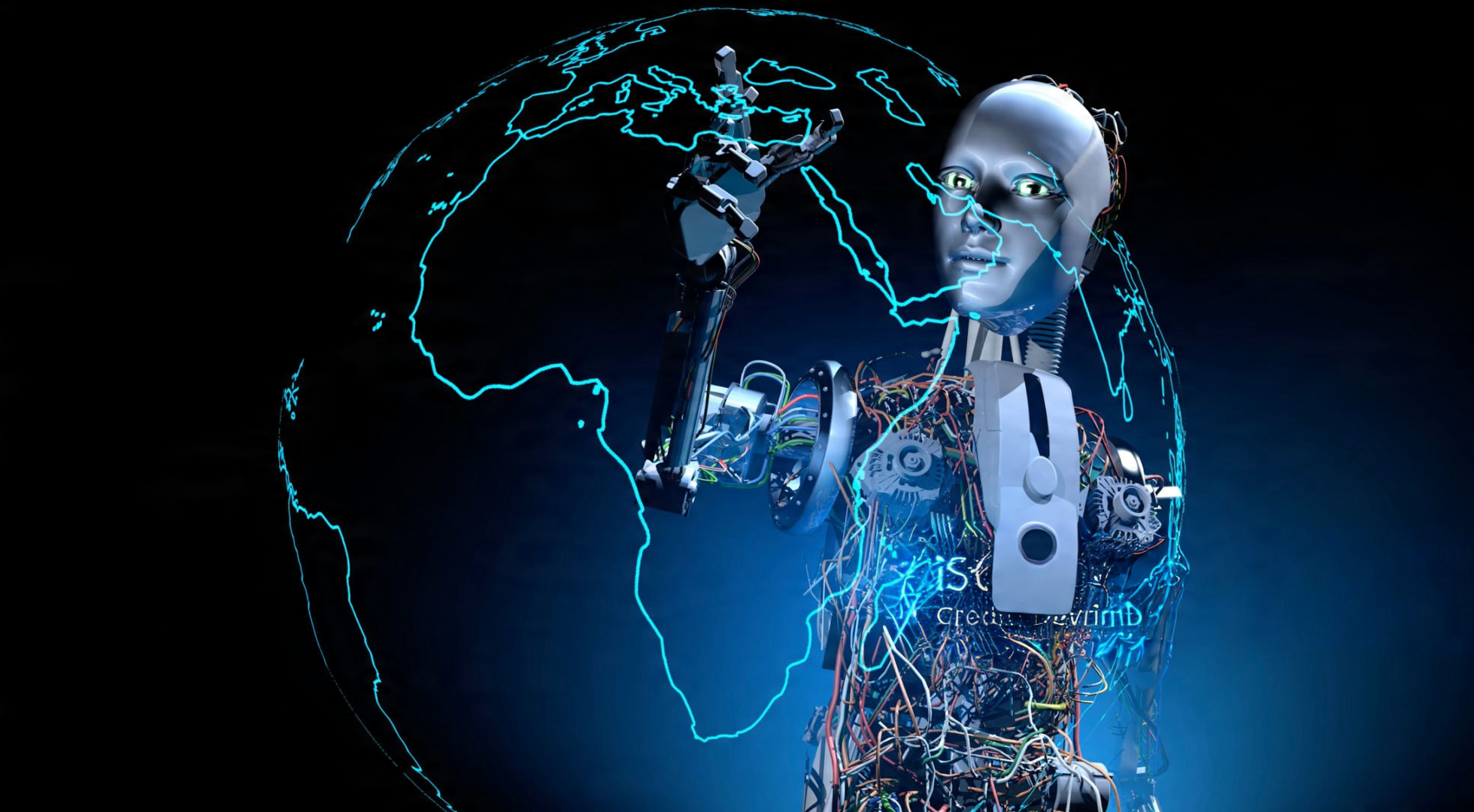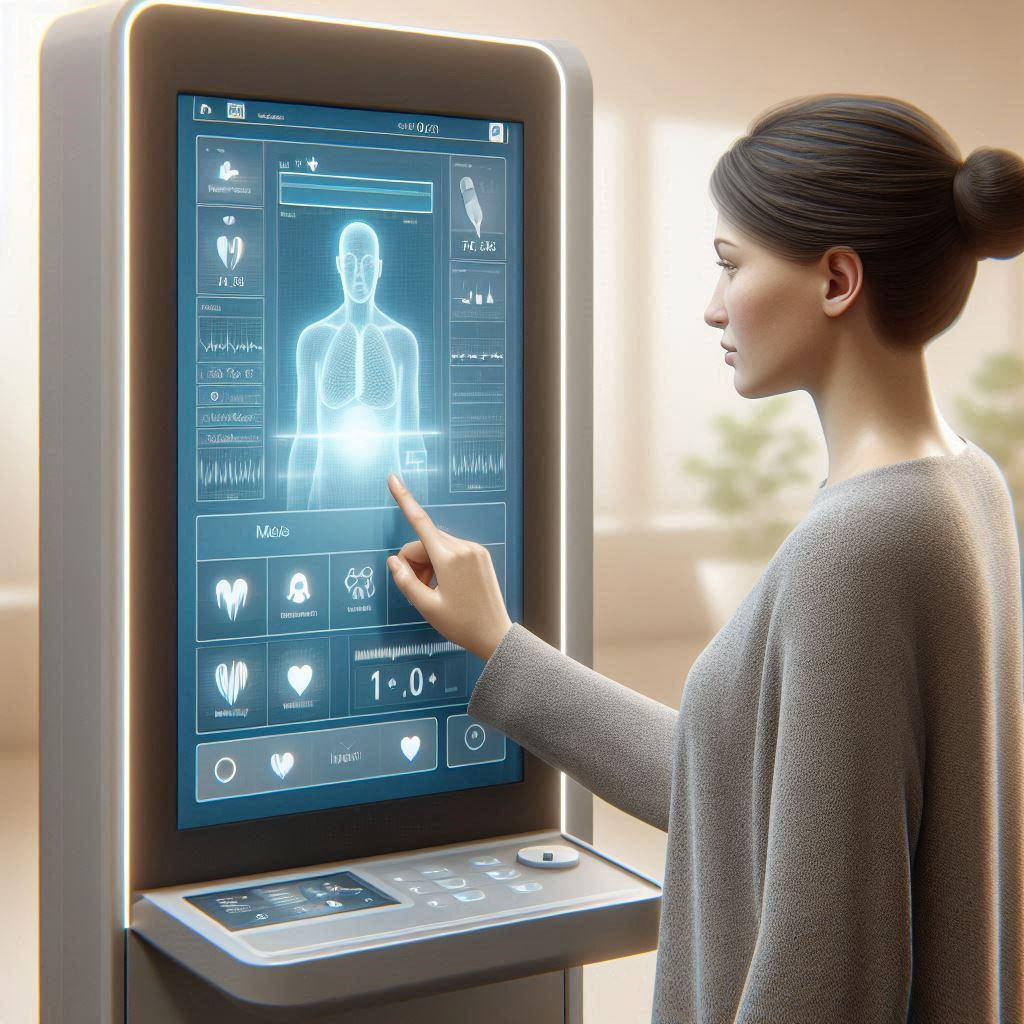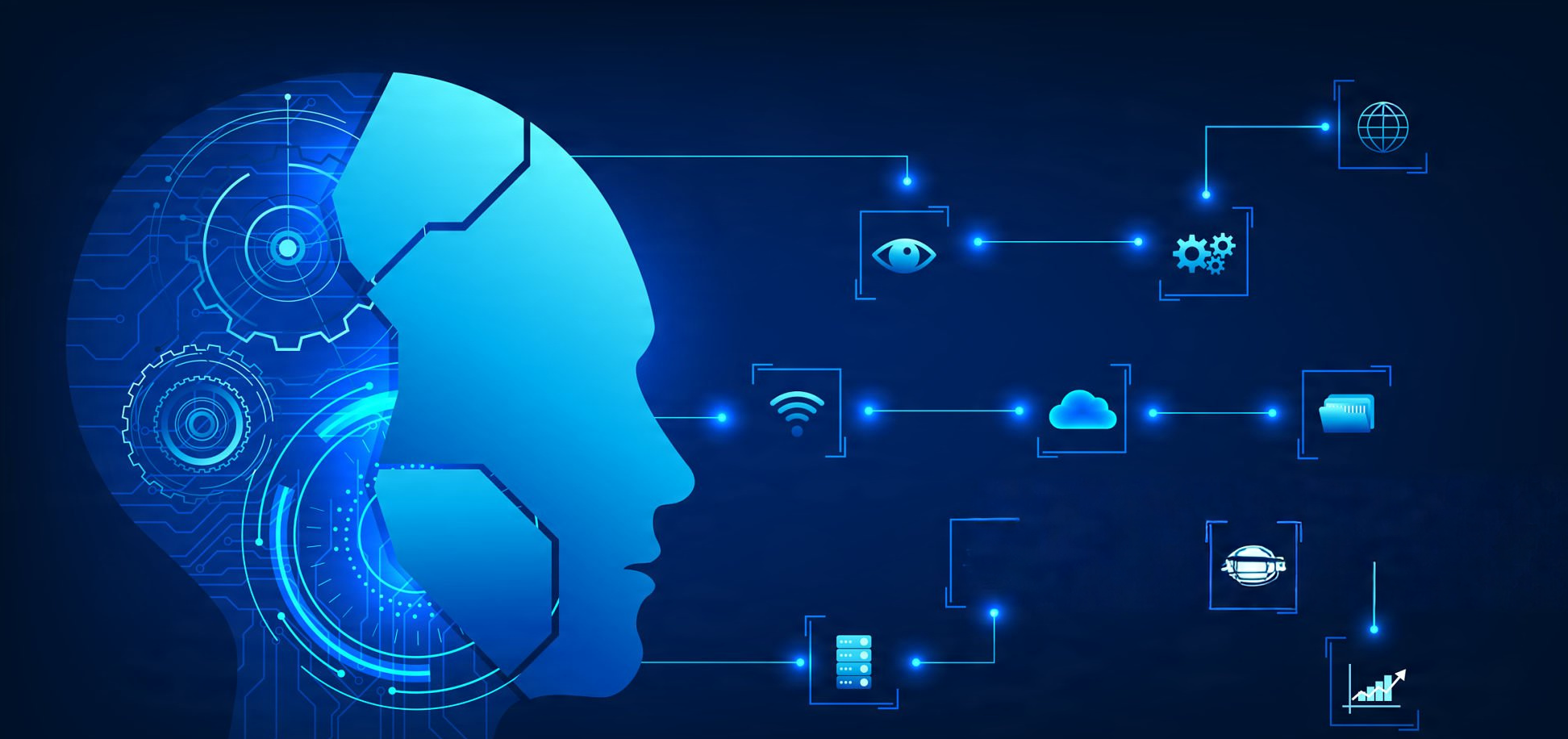As the Fourth Industrial Revolution reshapes global economies, artificial intelligence (AI) is not just a technological trend, it is a strategic imperative. For Africa, this transformation holds historic potential: the ability to leapfrog legacy systems, drive inclusive growth, and solve uniquely African challenges with globally competitive tools. At Merwel Inc., we believe that unlocking AI’s full value on the continent requires more than technology, it demands strategy, scale, and cross-sector collaboration.
The Promise: AI as a Catalyst for African Growth
AI is projected to contribute over $15.7 trillion to the global economy by 2030. In Africa alone, Generative AI (Gen AI) could unlock between $61 billion and $103 billion annually across sectors such as banking, education, agriculture, healthcare, and telecommunications. Traditional AI applications could add even more, doubling that impact when combined with Gen AI deployments. This highlights the immense potential for AI to drive economic growth and address critical needs across the continent.
Across the continent, we’re already seeing glimpses of this future:
- Kenya is deploying Gen AI for personalized education pathways to improve student performance.
- South African insurers are integrating AI to personalize financial advice and streamline operations.
- Nigerian telcos are using AI-powered assistants to enhance customer service 24/7.
- Rwandan health systems are leveraging AI-enabled drones for remote medical supply delivery.
- Across Africa, AI-driven translation services are improving cross-cultural communication and access to information.
These initiatives showcase Africa’s ingenuity and the power of AI to create leapfrogging opportunities. They demonstrate how AI is being used to solve pressing problems in novel ways. But they are only scratching the surface.
The Challenge: Institutional and Structural Barriers
Despite the promise, scaling AI in Africa faces several constraints:
- Infrastructure gaps in digital connectivity and compute capacity
- Limited AI talent due to underinvestment in education and research
- Weak institutional frameworks that hinder intellectual property protection and cross-border collaboration
- Fragmented data ecosystems and limited access to high-quality datasets
- Low AI awareness among policymakers and business leaders
- Other challenges include poor infrastructure, logistical inefficiencies, limited market insights, and regulatory complexities.
These barriers hinder the development and scaling-up of AI-enabled technologies. At Merwel Inc., we see these not as roadblocks, but as the starting points for focused, transformative investment.
- Infrastructure Gaps in Digital Connectivity and Compute Capacity
- Internet Penetration: Only 40% of Africans used the internet in 2022, far below the global average of 66% (ITU, 2022). In Sub-Saharan Africa, this drops to 36%, with rural areas disproportionately affected.
- Energy Access: Over 600 million people in Sub-Saharan Africa lack reliable electricity (World Bank, 2020), crippling tech infrastructure. For example, Nigeria, Africa’s largest economy, has a grid electrification rate of just 55%.
- Compute Capacity: Africa hosts <1% of global data centers (Xalam Analytics, 2023). South Africa, Kenya, and Nigeria account for most of the continent’s 100+ data centers, but this pales compared to Europe (2,000+) or the U.S. (5,300+).
Opportunity: Investments in decentralized renewable energy (e.g., solar-powered data centers) and public-private partnerships for broadband expansion (e.g., Google’s Equiano subsea cable) could bridge gaps.
- Limited AI Talent Due to Underinvestment in Education and Research
- STEM Graduates: Sub-Saharan Africa produces only 100 researchers per million inhabitants, vs. 4,500 in North America (UNESCO, 2021).
- R&D Spending: African nations invest just 0.42% of GDP in R&D, compared to the global average of 1.7% (UNESCO). Kenya allocates 0.8%, while South Africa spends 0.75%, still below the African Union’s 1% target.
- Brain Drain: 70,000 skilled professionals emigrate annually from Africa (African Development Bank), depriving the continent of 20% of its AI/tech workforce.
Opportunity: Upskilling programs (e.g., Google’s AI Labs in Ghana) and incentives to retain talent (e.g., Rwanda’s visa-free tech policies) could reverse trends.
- Weak Institutional Frameworks
- IP Protection: South Africa (59th) and Kenya (80th) rank lowest in the Global Innovation Index 2023 for IP safeguards. Only 15% of African startups patent innovations due to bureaucratic hurdles.
- Cross-Border Collaboration: Intra-African research collaborations account for <10% of publications (World Bank). Regulatory misalignment (e.g., data privacy laws in Nigeria vs. Kenya) slows pan-African AI projects.
Opportunity: Harmonizing policies under the African Continental Free Trade Area (AfCFTA) and adopting model laws (e.g., AU’s Data Policy Framework) could strengthen institutions.
- Fragmented Data Ecosystems
- Data Accessibility: Africa generates 1-2% of global data (World Economic Forum), with critical sectors like agriculture and healthcare lacking digitized records. For example, 60% of smallholder farmers lack access to data-driven tools.
- Open Data: South Africa leads Africa in the Open Data Barometer (52nd globally in 2022), but 80% of African governments do not publish datasets in machine-readable formats.
Opportunity: National data trusts (e.g., Ghana’s Open Data Initiative) and cross-sector partnerships (e.g., IFC’s AgriTech data hubs) could unify ecosystems.
- Low AI Awareness Among Policymakers and Business Leaders
- Policy Gaps: A 2021 survey by Research ICT Africa found 60% of policymakers in Nigeria, Kenya, and Senegal had limited understanding of AI’s economic potential.
- Business Adoption: Only 30% of African enterprises use AI-driven tools (Brookings, 2022), compared to 70% in North America.
Opportunity: Awareness campaigns (e.g., AI4Africa workshops) and pilot projects (e.g., Kenya’s AI-powered traffic management) can demonstrate ROI.
The Solution: Building AI-Ready Systems, Not Just Systems with AI
Merwel’s approach is holistic. We help governments and enterprises move beyond pilots to enterprise-grade, AI-driven operations.
- National AI Strategy & Governance:
- We support governments in designing AI strategies that align with national development goals.
- This includes ensuring policy, regulation, and ethics frameworks are in place to attract investment and guide responsible deployment.
- Sector-Specific AI Transformation:
- AI is not one-size-fits-all. We build tailored roadmaps for priority sectors:
- Healthcare: AI for diagnostics, supply chain optimization, and predictive disease modeling.
- Education: AI-powered learning platforms, student retention analytics, and teacher support tools.
- Agriculture: Precision farming, AI-driven crop diagnostics, and market intelligence tools.
- AI is not one-size-fits-all. We build tailored roadmaps for priority sectors:
- Talent & Ecosystem Development:
- We co-develop local innovation hubs, training programs, and open data platforms.
- This fosters an ecosystem of African AI researchers, startups, and technologists.
- Responsible Innovation:
- We ensure that Africa’s AI journey is inclusive, equitable, and grounded in African values and realities.
- We achieve this through partnerships with organizations like the Digital Cooperation Organization and the OECD.
- We also emphasize the importance of addressing challenges like ethical considerations, bias in algorithms, and data privacy.
- This is crucial for building trust and ensuring the sustainable development of AI in Africa.
From Pilot to Scale: Africa’s AI Frontier
AI in Africa must now move from experimentation to execution. As research shows, sectors like retail, telecommunications, consumer packaged goods, and financial services already have real-world use cases. What’s needed now is:
- Scaling deployments beyond pilots
- Redesigning workflows to integrate AI deeply
- Building “agentic” AI systems that automate complex decisions while maintaining human oversight
- Focusing on key areas like marketing and sales, customer operations, and software engineering to maximize the impact of Gen AI.
Merwel Inc. is partnering with leading African institutions and multinationals to build that future. Whether it’s deploying AI to accelerate patient triage in rural clinics or using large language models to localize education content in underserved regions, our work is about impact.
- Scaling Deployments Beyond Pilots
- Pilot Stagnation: Over 60% of AI projects in Africa remain stuck in the pilot phase due to funding gaps and misaligned incentives (McKinsey, 2023). For instance, only 15% of African fintech AI pilots achieve scale (GSMA, 2022).
- Sector Successes:
- Financial Services: Mobile money platforms like Kenya’s M-Pesa use AI to detect fraud, reducing losses by 30% (CBK, 2023).
- Retail: Nigeria’s TradeDepot employs AI to optimize inventory for 40,000+ informal retailers, cutting stockouts by 25% (IFC, 2022).
- Telecom: MTN uses AI-driven chatbots to resolve 80% of customer queries in South Africa, saving $10M annually (Omdia, 2023).
Opportunity: Merwel Inc. supports scaling through blended finance models (e.g., partnering with AfDB’s $618M digital infrastructure fund) and replicable frameworks for high-impact sectors.
- Redesigning Workflows to Integrate AI Deeply
- Adoption Barriers: 55% of African enterprises cite legacy IT systems as a barrier to AI integration (BCG, 2023). For example, 70% of South African banks still rely on siloed data architectures.
- Workflow Transformation:
- Safaricom (Kenya) redesigned its customer service workflow with AI, reducing average query resolution time from 48 hours to 2 hours.
- Twiga Foods (Kenya) uses AI to automate supply chain decisions, slashing delivery costs by 18% (TechCrunch, 2023).
Opportunity: Merwel Inc. focuses on modular AI tools compatible with low-bandwidth environments and legacy systems, ensuring seamless integration.
- Building “Agentic” AI Systems for Complex Decisions
- Automation Potential: AI could automate 20-30% of tasks in healthcare and agriculture, saving 500M labor hours annually in Africa (World Bank, 2023).
- Use Cases:
- Healthcare: Zipline’s AI-powered drones in Rwanda automate 75% of blood delivery logistics, cutting maternal mortality by 51% in serviced regions (BMJ, 2022).
- Agriculture: Hello Tractor (Nigeria) uses AI to optimize tractor routing, boosting smallholder farm yields by 40% (FAO, 2023).
Opportunity: Merwel Inc. is developing agentic AI for rural clinics (e.g., triage automation in Nigeria, reducing patient wait times by 65%) while ensuring ethical oversight through partnerships with AU’s AI ethics taskforce.
- Focusing on Key Impact Areas for Generative AI
- Marketing & Sales: Gen AI could reduce content creation costs by 50% for African SMEs. For example, Kenya’s Copia Global uses AI to personalize ads for 2M+ low-income customers, increasing conversion rates by 35% (Ventures Africa, 2023).
- Customer Operations: AI chatbots handle 50% of queries at Kenya’s Equity Bank, freeing staff to focus on complex cases (CNBC Africa, 2023).
- Software Engineering: AI coding assistants like GitHub Copilot could save African developers 300+ hours/year on repetitive tasks (Accenture, 2023).
Opportunity: Merwel Inc. is piloting Gen AI tools to localize educational content (e.g., translating STEM materials into Swahili and Yoruba) and automate code generation for African startups.
The Time is Now
Africa’s AI adoption holds transformative potential, with projections suggesting it could unlock $1.2 trillion in economic value by 2030 (McKinsey, 2023). At Merwel Inc., we are closing the scale gap by forging strategic partnerships and delivering context-driven solutions tailored to Africa’s unique challenges. By prioritizing scalable AI systems, from healthcare triage tools to localized education platforms—we aim to turn fragmented pilots into continent-wide prosperity.
Africa’s AI journey is not about playing catch-up; it is about redefining leadership. True innovation will not come from imported technologies but from solutions co-created with African communities, led by African talent, and amplified through equitable global collaboration. This is not merely a question of what AI can achieve, but what it should achieve for Africa’s people. At Merwel Inc., we are committed to ensuring that AI serves as a force for inclusive growth, empowering the continent to leapfrog traditional barriers and chart its own path forward.
The future of AI in Africa is not built on algorithms alone—it is built on purpose.




